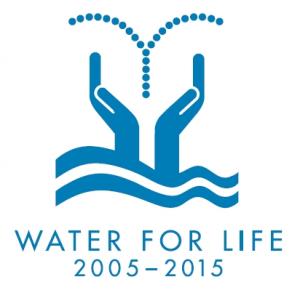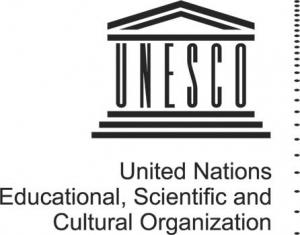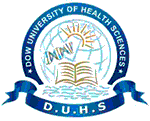
Death-defying Consequences of Water Reserves' Complex Toxic Contamination—Unveils UN Water-Life Nexus Observances 2014.
Terrifyingly, almost 3-4 babies are dying a minute due to unsafe drinking water, for which, ecologically non compatible sewage system is the major root-source.
More than 78% of the world population is on high stakes of vector-borne diseases due to toxically-infested unsafe drinking water-- for which, in almost 72-83% cases, particularly in the developing countries of Asian and African regions, the ecologically non compatible sewage system is the major attributable provenance root-source, learnt the World Health Observance through UN WWD 2005-20015.
Over 8,69,000 children under five, die every year due to toxically germ-infested unsafe drinking water—almost over 3-4 babies a minute. Countless others fall in serious sufferings of long-term health consequences. Inadequate sanitation and ecologically incompatible sewage-drainage systems are the primary causes of the present situation, according to the UN statistical records.
The sewage outlets of the urban areas necessarily do impose a disproportionate and unfair burden on the lands where mostly the poor populations are inhabited. As a result, the soil along with subsoil water reservoirs, essentially become inept to shield against the burdens of both, the inorganic and organic wastes’ toxicities imposed thereupon, due to being incapable of bearing and processing this ‘disproportionate and unfair toxic burden’. In turn,… “eventually and logically, the sources of water allocations for human consumption are left on high stakes…”, cautioningly mentions a thematic report titled ‘Subsoil Hydro-toxification Indicators’ by SAIRI’s ‘Hydro-De-Tox’ Initiative for Asia and Africa.
According to the UNESCO released ‘UN-WWD-2014 Report’, some 768 million people do not have access to an improved source of water, and 2.5 billion do not have access to appropriate sanitation.
The evidence-based SAIRI report is two-fold and primarily focuses on the multi-causal segment-orbs of pre-birth disabilities due to complex embryonic toxications, comprehensively briefs that ‘how the subject under focus-‘Teratogenicity’ matters’, and ‘why it merits’ the global attention, in general, and of the academia and the policy making hierarchies like the UN in particular.
The ‘UN-World Water Observances 2014’, were marked under two separate themes: ‘Water-Energy Nexus’ by the UNU in Tokyo, Japan and the ‘Water-Life Nexus’ in the SAARC region, by the SAIRI. The former theme was focused in perspectives of developed countries, whilst the later highlighted serious concerns with a focus on undeveloped countries, particularly the least developed countries (LDCs) of Asia and Africa regions respectively.
The UN Secretary General, Ban Ki Moon said in his central note to the World Water Observance-2014 that, “Let us pledge to develop the policies needed to ensure that sustainable water and energy are secured for the many and not just the few.”
The UN Special Rapporteur on the human right to safe drinking water and sanitation, Catarina de Albuquerque, stressed in a distinct note, that “ill-thought out allocation of water has a disproportionate effect on the poorest sectors of society” and that “it is crucial that Governments apply a human rights framework to guide their actions.”
On behalf of SAARC sector’s academic alliance on subsoil water toxicity research initiative, the SAIRI’s Senior Director Prof. Umar Farooq, Pro-VC Dow University of Health Sciences, thematically emphasized that, “Improper and untreated disposal of sanitary water and untreated industrial waste is resulting in contamination of sub soil water, and thus threatening the nature".
For their thematic part, added the SAIRI’s Principal Investigator alongwith the DUHS Pro-VC, and the UNESCO-SAARC chair at PU, in a cautioning note that “Human beings consuming the sub-soil water and the crops in which the water is used, become a source of spread of avertable severe diseases. We have to raise the awareness globally for the prevention of contamination of natural reservoirs of water”.
The ‘subsoil hydro-toxications’ theme initiator Qadhi Prof. Aurangzeb Hafi said in SAIRI’s indications report that, “Academically, on the face of the subject under focus, we must acknowledge that it is impossible to address these complexities, if we treat them in isolation. We need to recognize the multifarious interactions between them that are closely interlinked”. “Places where people do not have adequate access to water largely coincide with those where toxicity-centered diseases endemics in general, and embryonic-teratogenesis pandemic out-breaks in particular, are threateningly high.” notes further the multi-disciplinary arch-researcher Prof. Hafi, who is credited for foremostly identifying the teratogenic effect of underground water’s contaminations responsible for complex embryonic hydro-toxicity resulting in multiple disabilities at pre-birth stages as well as in the newly born.
UNESCO Director-General Irina Bokova emphasized that “There is enough water in the world for everyone. What we continue to lack is better governance and the collective courage to craft fair compromise solutions”. She said, adding “It is about improving maternal health, curbing child mortality, and preserving the environment.”
Water is the fundamental essential for all of the living beings on earth, including the human beings. Indispensably and vitally, its sustainability in the comprehensive ecological perspectives comes to be the principal denominator of all challenges concerning the survival, subsistence, sustainability and development of the diverse realms in connection of humankind including the air we breathe of, the water we survive upon, the agricultural crops and plant-kingdom we sustain with, the animals we depend of and finally whole of the environment in its totality we live in,—thus encompassing the all-around core and conjoint dominions of humankind’s concerns commonalities hemmed in the United Nations’ MDGs.
The United Nations proclaimed 2005-2015 as the UN-Water Decade, with a theme-specified focus entitled ‘Water for Life’ by its Resolution No. A/RES/58/217.
The WWD Observance-2014, that marks the second last year of the theme-specific decade as well, however took it steps further by embracing a thematic debate highlighting the concerns related to severe contamination of underground water reserves, along with its pandemic out-breaks and life-threatening vector-borne consequences, covering not only the human health perspectives and priority concerns, but of all the biological systems on earth including both, the animal and the plant kingdoms which are being severely affected by the perpetuated multiplex of toxications of the wide-extent practice of prevailing sewage drainage system, that is not at all ‘ecologically compatible’, neither ‘human rights ethicality or morality-oriented’, nor ‘environmentally sustainable’ by no means, at any measure.
References:
http://www.heraldonline.com/2014/04/07/5846088/high-fractions-of-child-mortality.html
http://healthcaretimes.com/pr-news.asp?doc=201404071323PR_NEWS_USPR_____PH99048&dir=0
http://www.telegraphindia.com/pressrelease/prnw/ph99048.html
http://www.streetinsider.com/Press+Releases/High+Fractions+of+Child+Mortality+Directly+Linked+to+Unsafe+Drinking+Water+Toxicities+--+UN-Water+Decade+Observance+2014,+in+the+United+Nations+MDGs+%26amp%3B+Post-2015+Perspectives/9358354.html
http://www.dailytimes.com.pk/national/09-Apr-2014/unsafe-drinking-water-causes-disability-among-children-worldwide
http://www.euarticles.us/article/life-threatening-consequences-of-under-ground-water-s-toxic-contaminations-in-asia-africa-regions-due-to-the-ecologically-non-compatible-sewage-systems-highlighted-by-the-world-health-day-observance-2014
http://www.healthtechnologynet.com/articles/viewarticle.jsp?id=3170946&type=home
ContentCo-GNN
UN Observance Media
0064221260299
email us here
EIN Presswire does not exercise editorial control over third-party content provided, uploaded, published, or distributed by users of EIN Presswire. We are a distributor, not a publisher, of 3rd party content. Such content may contain the views, opinions, statements, offers, and other material of the respective users, suppliers, participants, or authors.




